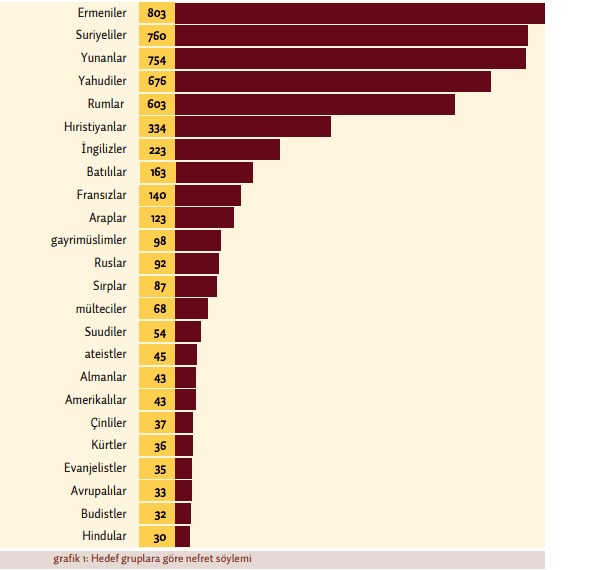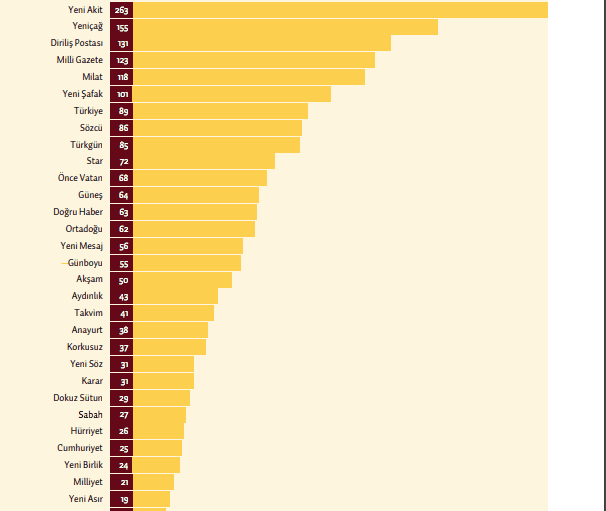The study belonging to the full year 2019 of the “Hate Speech in the Media” reports prepared within the Hrant Dink Foundation has been published. According to the report, the groups that produced the most hate speech in the media in 2019 were Armenians, Syrians and Greeks.
This year, the report also includes the file “Discriminatory discourse against Kurds in the printed media: the example of the 2019 Local Elections.”

In the media monitoring study, weekday issues of all national newspapers and local newspapers reaching 500 in number are scanned. In 2019 in Turkey print media, It is seen that hate speech is produced in more than 17 news and columns a day, that 80 different ethnic, religious and national identities are targeted throughout the year, and negative judgments about these identities are reinforced.
It was determined that in 2019, 4364 columns and news texts targeting national, ethnic and religious groups were published in national and local newspapers scanned within the scope of the “Monitoring Hate Speech in the Media” research. It was observed that 108 of them had different categories of hate speech towards more than one group. In these texts, 5515 content of hate speech about 80 different groups were identified.

The ranking of the groups that hate speech was produced towards is as follows:
Top 30 Broadcasting Organs Producing the Most Hate Speeches are as follows:
Discriminatory discourse against Kurds in the print media: In the 2019 Local Election report, around which issues and themes the print media dealt with Kurds, how the Kurdish identity and Kurds are presented in newspapers, which is a public medium, were examined.
In the study, based on the observation that the discriminatory discourse produced in the media during election periods when political discussions are intense, it can be more specific and precise, the focus was on the discriminatory language against Kurds in the print media during the 2019 local election period.
In this report, in the news and columns examined under the headings “Acceptable ‘Kurds /’ Unsolicited ‘Kurds” and “Kurdish identity as a’ national security problem ‘”, more elaborate, discriminatory and marginalizing messages that cannot be directly described as hate speech It was determined that the implicit expressions were dominant. The texts analyzed under the headings of “linking Kurdish with crime” and “Kurds across borders” were directly evaluated within the scope of hate speech, as they target Kurds as a community and mark the identity itself as the bearer of negativities by making generalizations about Kurdish identity.